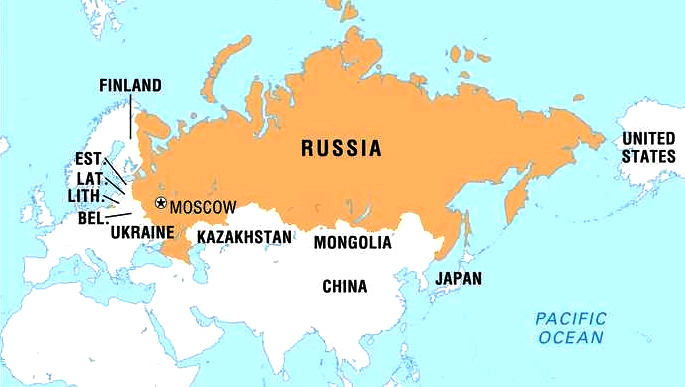International Relations
NATO Membership for Finland and Sweden
- 16 May 2022
- 7 min read
For Prelims: NATO, EU, Baltic Sea, Location of Russia
For Mains: Russia-Ukraine Crisis, NATO, NATO-Russia Dynamics
Why in News?
Recently, Finland and Sweden have shown interest to join the North Atlantic Treaty Organization (NATO).
Why are Sweden and Finland Not NATO Members?
- Finland:
- It has stayed out of such alliances because it always wanted to maintain cordial relations with its neighbour, Russia.
- For a long time, the idea of not joining NATO or getting too close to the West was a matter of survival for the Finns.
- However, the change in perception and an overwhelming support to join NATO came about following the Russian invasion of Ukraine.
- Sweden:
- Unlike Finland, whose policy stance was a matter of survival, Sweden has been opposed to joining the organisation for ideological reasons.
What would a membership mean and will it benefit NATO as well?
- Give Security Guarantee:
- Being a member of NATO will give the nations a security guarantee under the alliance’s “Article 5” on collective defence.
- The article essentially guarantees a military response and protection by NATO countries if any member of the organisation comes under attack.
- Being a member of NATO will give the nations a security guarantee under the alliance’s “Article 5” on collective defence.
- Strengthen the Alliance’s Position:
- Finland’s geographical location plays in its favour as once it becomes a member, the length of borders Russia shares with NATO would double and it would also strengthen the alliance’s position in the Baltic Sea.
- Counter Russia’s Aggression:
- More sovereign powers siding with the west and increasing its strength is a direct blow to Russia.
- If Sweden and Finland do join NATO, especially under these circumstances, “it would show Russia that the war is counterproductive and it only strengthens Western unity, resolve and military preparedness”.
How have Russia and other Countries Reacted?
- Russia:
- Russia threatened to take military measures if the membership goes through and warned Finland to be aware of the consequences of this move.
- European and US:
- European Nations and the United States have welcomed the announcement.
- Norway and Denmark have said they will push for NATO admission faster.
- Until the membership is formally accepted, the US stated it is prepared to provide any necessary defence support or address any concerns.
- Turkey:
- Turkey opposes Finland and Sweden joining NATO.
- The Turkish government claimed that it could use its membership in the Western alliance to veto moves to admit the two nations.
- The Turkish government cited Sweden and other Scandinavian countries for supporting Kurdish militants and other groups it considers terrorist.
What is NATO?
- It is a military alliance established by the North Atlantic Treaty (also called the Washington Treaty) of April, 1949, by the United States, Canada, and several Western European nations to provide collective security against the Soviet Union.
- There are currently 30 member states.
- Its original members were Belgium, Canada, Denmark, France, Iceland, Italy, Luxembourg, the Netherlands, Norway, Portugal, the United Kingdom, and the United States.
- Joining the original signatories were Greece and Turkey (1952), West Germany (1955, from 1990 as Germany), Spain (1982), the Czech Republic, Hungary, and Poland (1999), Bulgaria, Estonia, Latvia, Lithuania, Romania, Slovakia, and Slovenia (2004), Albania and Croatia (2009), Montenegro (2017), and North Macedonia (2020).
- France withdrew from the integrated military command of NATO in 1966 but remained a member of the organization, it resumed its position in NATO’s military command in 2009.
- Headquarters: Brussels, Belgium.
- Headquarters of Allied Command Operations: Mons, Belgium.
What are the Objectives of NATO?
- NATO’s essential and enduring purpose is to safeguard the freedom and security of all its members by political and military means.
- Political objectives: NATO promotes democratic values and enables members to consult and cooperate on defense and security-related issues to solve problems, build trust and, in the long run, prevent conflict.
- Military Objectives: NATO is committed to the peaceful resolution of disputes. If diplomatic efforts fail, it has the military power to undertake crisis-management operations.
- These are carried out under the collective defence clause of NATO's founding treaty - Article 5 of the Washington Treaty or under a United Nations mandate, alone or in cooperation with other countries and international organisations.
- NATO has only once invoked Article 5, on 12th September 2001 following the 9/11 attacks on the World Trade Center in the US.
Way Forward
- As Finland joins NATO, Russia could seek to deploy more troops along the Russian-Finland border and further thin-out an already attenuated Russian army.
- Finland and Russia share a 1,300 km border and the Russia’s actions against Finland’s (and potentially Sweden’s) NATO membership may heavily depend on the potential military asset deployment along the border on the Finnish, and potentially Swedish, side.
- The Finns may very well not opt for immediate asset deployment and perhaps would want to use their NATO membership as a signal to Russia but if they continue to feel sufficiently threatened, they may opt for exhaustive asset deployment.





